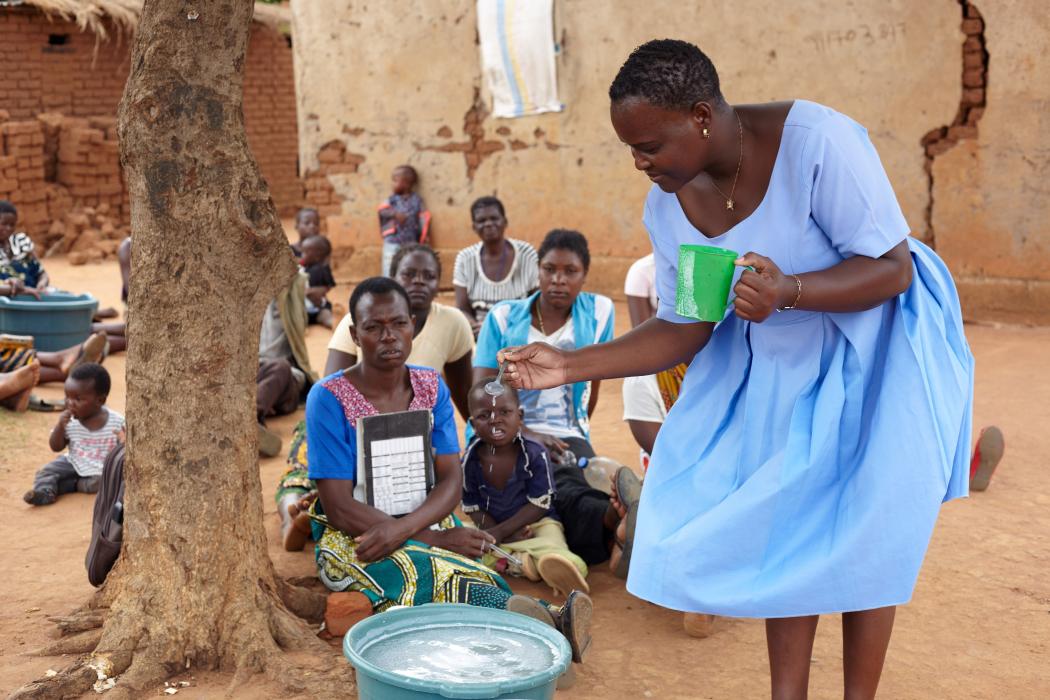Connected Struggles

Photo courtesy of Community Health Impact Coalition.
For International Women’s Day, CHIC calls on countries to invest in women and in professional CHWs.
Despite decades of global health investment, at least one billion people cannot access essential health services. They live in areas commonly defined as the hardest-to-reach communities. At the same time a minimum of six million women - primarily women of color - work unpaid or grossly underpaid in community health roles. And The Lancet Commission on Women and Health estimated that women contribute $3 trillion to global health annually—half in the form of unpaid work. That is why at the Community Health Impact Coalition (CHIC) we believe that the debate around professional community health workers (proCHWs) is more than a public health issue. It’s also a gender equity issue.
The debate around proCHWs is more than a public health issue. It’s also a gender equity issue.
Research shows that community health workers (CHWs) improve maternal and child health services, expand access to family planning, and support prevention and care for noncommunicable diseases. CHWs greatly enhance access to care for diseases such as malaria, HIV, and tuberculosis. And as trusted members of a community, CHWs understand the challenges community members face, local realities, and acceptable solutions. Put simply, CHWs are essential to realizing global health goals by bringing care directly to their neighbors.
CHIC members such as mothers2mothers (m2m), an African NGO that trains, employs, and remunerates local women living with HIV as CHWs—known as Mentor Mothers—show the impact that investing in women can have in creating a ripple effect of health and well-being. Since its creation in 2001, almost 12,000 Mentor Mothers have reached over 15 million people across sub-Saharan Africa with critical health services across a range of health issues, including HIV/AIDS, maternal and child health, TB, malaria, and NCDs. This shows that investments in female leadership result in improved access to services and sustainable community-led solutions.
And yet, as a Coalition made up of CHW Advocates and allied health care organizations, we know that women CHWs often accept no or low wages for what should clearly be waged work. But why? The reality is that women can find themselves backed into a gendered corner, with fewer choices simply because they are women. Women from low-income families and with low levels of education can often view unpaid work as an opportunity. It might lead to some paid work or an asset like a mobile phone or bicycle. Unpaid work in health can also bring women social recognition, as it’s seen as honorable work that families will approve of. And it can be seen as a chance to be included in decision-making. Although many women can benefit from this work and might choose to continue doing it, CHWs deserve and want to be fairly paid. How else can they provide for themselves and their families?
CHIC research in The Lancet Global Health finds that 59% of unsalaried CHWs face exploitation. So we’re left with this: either millions of women CHWs experience exploitation, or, more people won’t have access to health care. Fighting one injustice (lack of access to health) by perpetuating another (not paying CHWs) is not justice. And neither outcome achieves global health goals.
We’re calling for policy change to ensure CHWs everywhere are salaried, skilled, supervised, and supplied.
For International Women’s Day this year we are asked to invest in women and accelerate progress. The United Nations suggests that doing so would address a human rights challenge, lift people out of poverty, and shift to a care-based society. We agree. That’s why we’re calling for proCHW policy change to ensure that CHWs everywhere are salaried, skilled, supervised, and supplied. So that they can reach their potential for themselves, their patients, and their communities.
The global community faces a moral dilemma and imperative. Will we commit to decent livelihoods and equal opportunities for women? Or will we continue to build health systems on the backs of a largely unpaid, mostly female workforce? We believe that countries who invest in a strong workforce of proCHWs place themselves in the best position possible to invest in women, accelerate progress, and ensure health for all.
